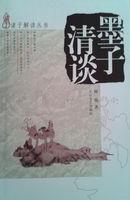We have representations within us, of which also we can be conscious.But, however widely extended, however accurate and thoroughgoing this consciousness may be, these representations are still nothing more than representations, that is, internal determinations of the mind in this or that relation of time.Now how happens it that to these representations we should set an object, or that, in addition to their subjective reality, as modifications, we should still further attribute to them a certain unknown objective reality? It is clear that objective significancy cannot consist in a relation to another representation (of that which we desire to term object), for in that case the question again arises: "How does this other representation go out of itself, and obtain objective significancy over and above the subjective, which is proper to it, as a determination of a state of mind?" If we try to discover what sort of new property the relation to an object gives to our subjective representations, and what new importance they thereby receive, we shall find that this relation has no other effect than that of rendering necessary the connection of our representations in a certain manner, and of subjecting them to a rule; and that conversely, it is only because a certain order is necessary in the relations of time of our representations, that objective significancy is ascribed to them.
In the synthesis of phenomena, the manifold of our representations is always successive.Now hereby is not represented an object, for by means of this succession, which is common to all apprehension, no one thing is distinguished from another.But so soon as I perceive or assume that in this succession there is a relation to a state antecedent, from which the representation follows in accordance with a rule, so soon do I represent something as an event, or as a thing that happens; in other words, I cognize an object to which I must assign a certain determinate position in time, which cannot be altered, because of the preceding state in the object.When, therefore, Iperceive that something happens, there is contained in this representation, in the first place, the fact, that something antecedes; because, it.is only in relation to this that the phenomenon obtains its proper relation of time, in other words, exists after an antecedent time, in which it did not exist.But it can receive its determined place in time only by the presupposition that something existed in the foregoing state, upon which it follows inevitably and always, that is, in conformity with a rule.From all this it is evident that, in the first place, I cannot reverse the order of succession, and make that which happens precede that upon which it follows; and that, in the second place, if the antecedent state be posited, a certain determinate event inevitably and necessarily follows.Hence it follows that there exists a certain order in our representations, whereby the present gives a sure indication of some previously existing state, as a correlate, though still undetermined, of the existing event which is given- a correlate which itself relates to the event as its consequence, conditions it, and connects it necessarily with itself in the series of time.
If then it be admitted as a necessary law of sensibility, and consequently a formal condition of all perception, that the preceding necessarily determines the succeeding time (inasmuch as Icannot arrive at the succeeding except through the preceding), it must likewise be an indispensable law of empirical representation of the series of time that the phenomena of the past determine all phenomena in the succeeding time, and that the latter, as events, cannot take place, except in so far as the former determine their existence in time, that is to say, establish it according to a rule.
For it is of course only in phenomena that we can empirically cognize this continuity in the connection of times.
For all experience and for the possibility of experience, understanding is indispensable, and the first step which it takes in this sphere is not to render the representation of objects clear, but to render the representation of an object in general, possible.It does this by applying the order of time to phenomena, and their existence.In other words, it assigns to each phenomenon, as a consequence, a place in relation to preceding phenomena, determined a priori in time, without which it could not harmonize with time itself, which determines a place a priori to all its parts.This determination of place cannot be derived from the relation of phenomena to absolute time (for it is not an object of perception);but, on the contrary, phenomena must reciprocally determine the places in time of one another, and render these necessary in the order of time.In other words, whatever follows or happens, must follow in conformity with a universal rule upon that which was contained in the foregoing state.Hence arises a series of phenomena, which, by means of the understanding, produces and renders necessary exactly the same order and continuous connection in the series of our possible perceptions, as is found a priori in the form of internal intuition (time), in which all our perceptions must have place.
That something happens, then, is a perception which belongs to a possible experience, which becomes real only because I look upon the phenomenon as determined in regard to its place in time, consequently as an object, which can always be found by means of a rule in the connected series of my perceptions.But this rule of the determination of a thing according to succession in time is as follows: "In what precedes may be found the condition, under which an event always (that is, necessarily) follows." From all this it is obvious that the principle of cause and effect is the principle of possible experience, that is, of objective cognition of phenomena, in regard to their relations in the succession of time.















